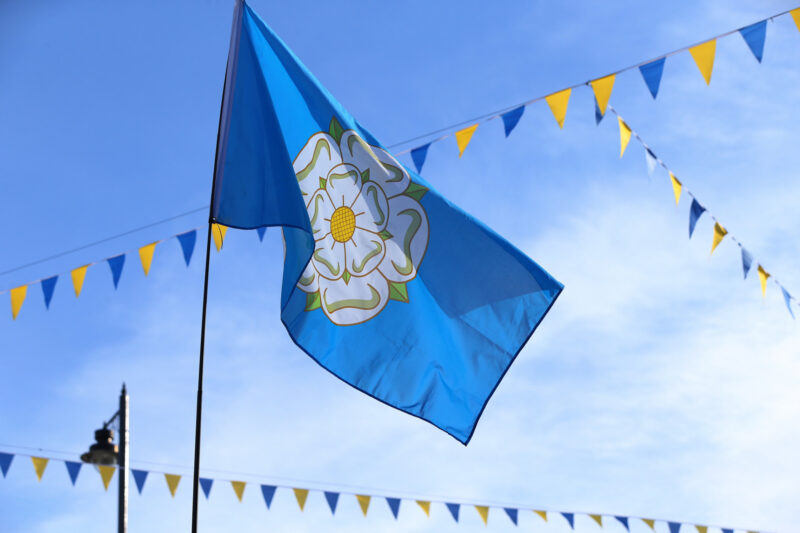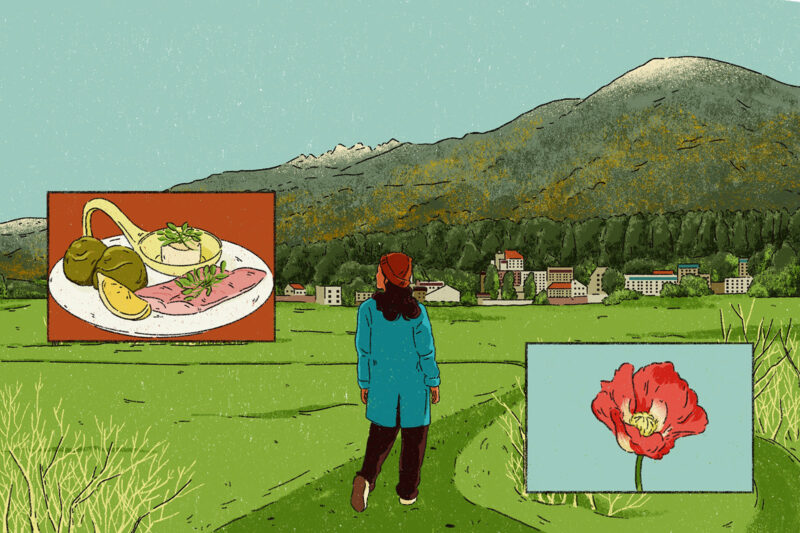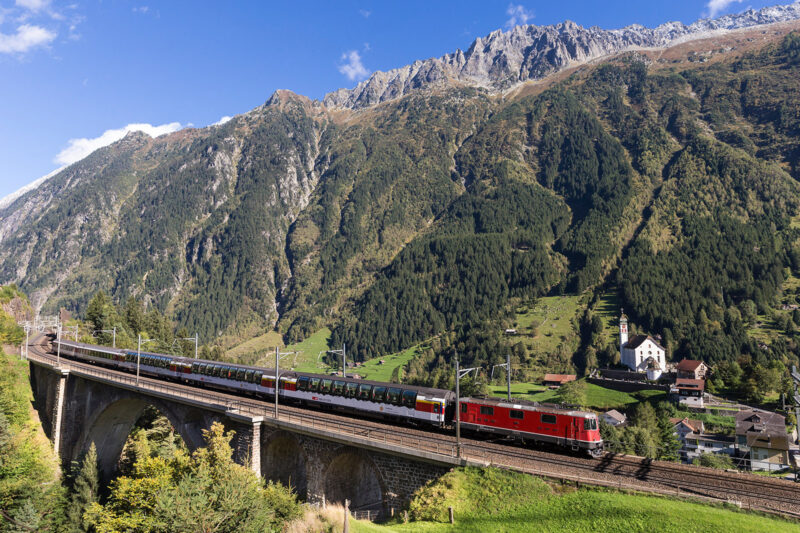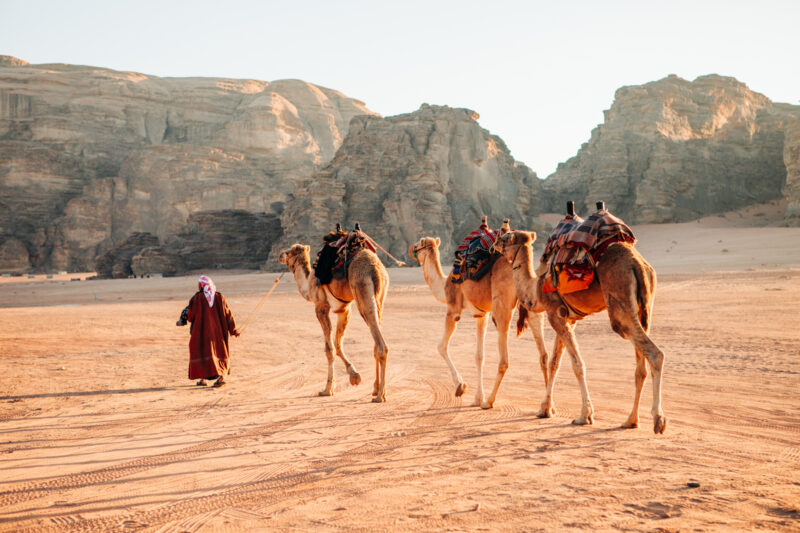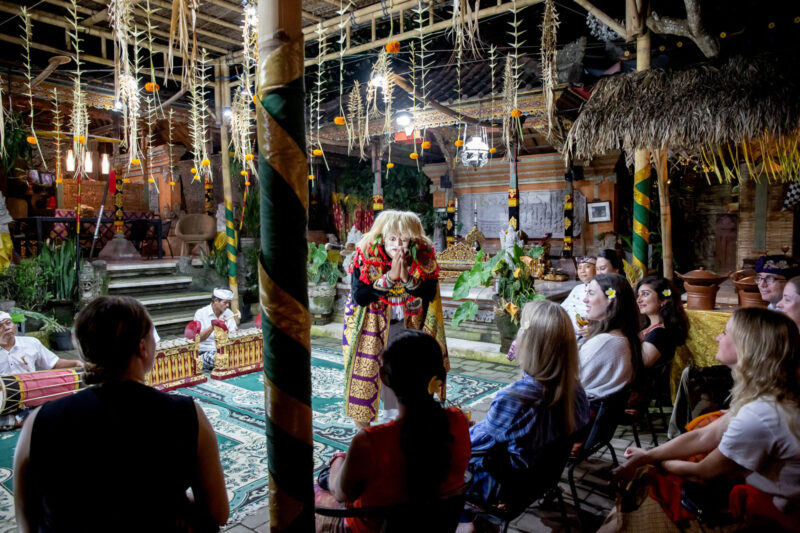‘It’s not normal to go and climb a mountain’
Or is it? Seventy-five years after Britain passed the national parks act, legally enshrining people’s right to access open countryside, a new generation is discovering the joys of touching grass
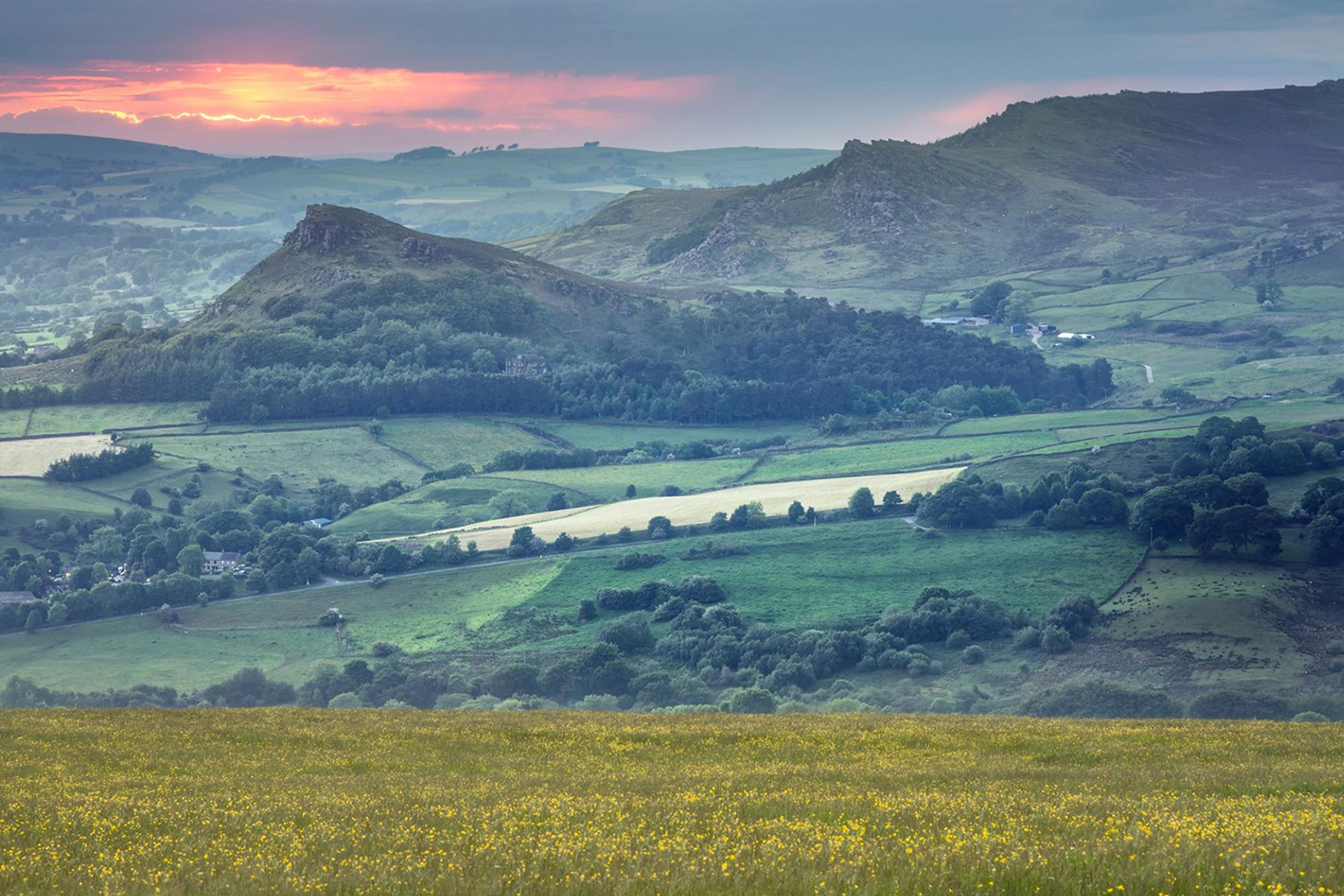
A brisk midsummer breeze greeted me as I stepped off the train at Buxton, conspiring with my heavy backpack to rock me backwards on my heels. Buxton is the western gateway to the Peak District, and lined up along the platform were vintage-style tourism posters depicting some of this region’s many wonders: the polygonal, gravity-defying rock formations of The Roaches, the tumbling waterfalls of Three Shires Head, and the stepping stones of Chee Dale, winding in the shadow of a limestone gorge. With a tent on my back, the Ordnance Survey mapping app on my phone, and not very much by way of a plan, I was setting out to indulge in one of the great luxuries afforded to us in Britain: an aimless adventure in a national park.
Britain’s national parks are celebrating a significant birthday, with 2024 marking 75 years since they were established through the National Parks and Access to the Countryside Act 1949. That act enshrined people’s right to access the open countryside, while also protecting natural beauty and biodiversity. Each national park has its own charms: Northumberland’s landscape of Roman ruins, the mirror-world reflected in the waters of the Lake District, and, in the Peak District – the oldest national park, opening in 1951 – unparalleled hillwalking and rock climbing.
Here in Buxton, a young British Muslim adventurer, Naimah Kadar, was honoured for her fundraising work earlier this year by the Buxton Rotary Club, who nominated her for the nationwide Rotary Young Citizen Award. Naimah, 20, has raised thousands climbing Mount Kilimanjaro in Tanzania and Mount Toubkal in Morocco, but she told me that growing up near the Peak District was vital to developing her love of the outdoors.
“The national parks are the reason I’ve been able to do everything I’ve done in the outdoors,” she said. “But for people from my kind of background – Muslim girls in particular – it’s not normal to go and climb a mountain. People are either shy, or they don’t have access to the countryside, or their parents are worried. I want to be a role model for others, to show that it’s possible.
“I was supporting a Duke of Edinburgh Silver Award group in the Peak District recently, and there was a Muslim girl there in a headscarf, from quite a strict background. She said she wanted to follow in my footsteps and do everything that I’ve done. It made me so proud.”
Technology has made accessing national parks easier than ever. I opened my mapping app and chose the nearest public footpath leading east out of Buxton, which led me through an industrial estate, down a gravel path, and then, quite suddenly, into open countryside: wildflower meadows dotted with vivid violet flowers, the earth rippled with outcrops of light grey limestone. The lane meandered steadily downhill, bookmarked by drystone walls and overlooking green fields full of ruminating sheep. As the path approached the River Wye, it crossed the Monsal Trail – a walking and cycling route which follows a former railway line – and continued into the gorge of Chee Dale.
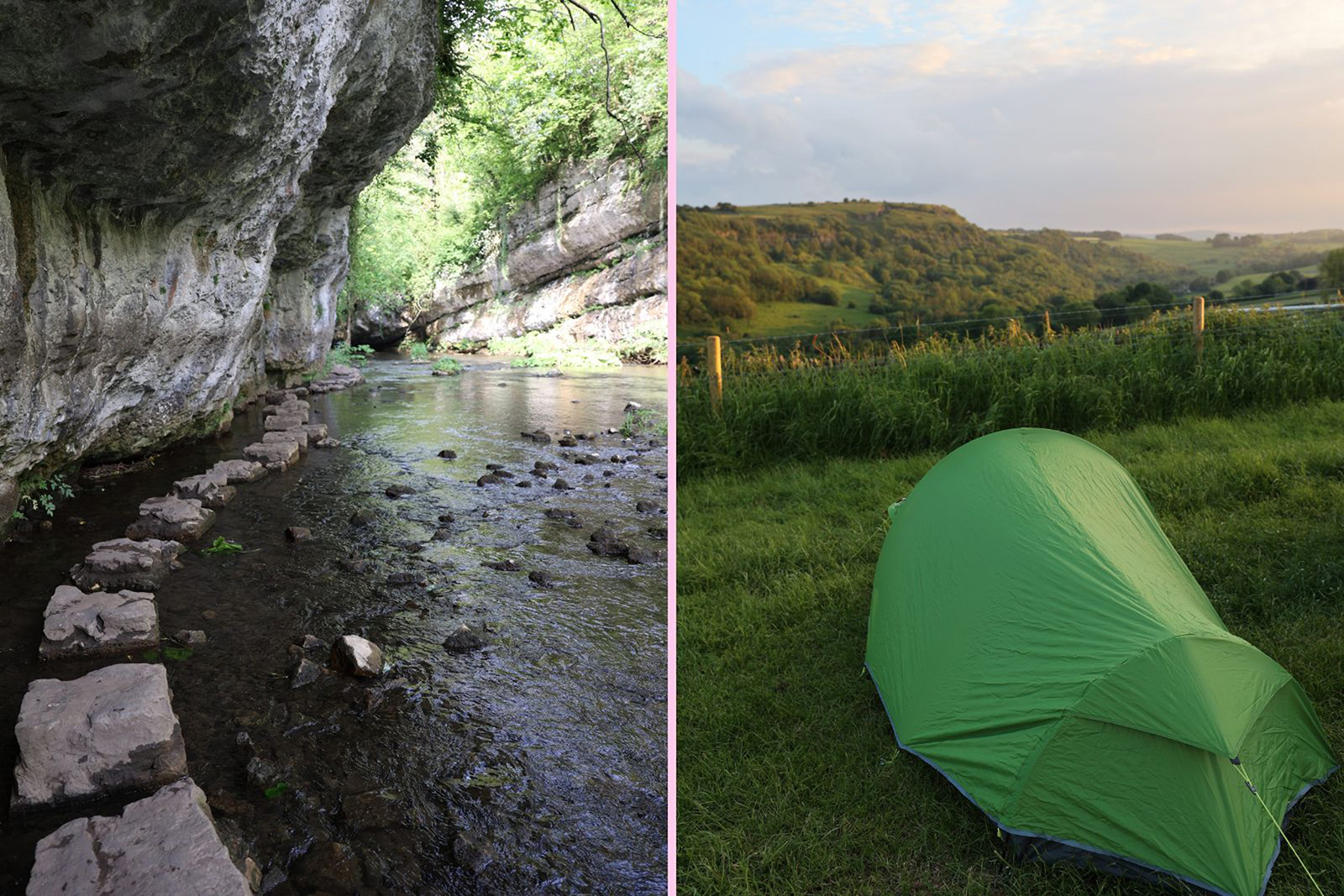
As I followed the riverbank east, the gorge began to close in on me. The walls reared higher and grew a crown of trees, refracting the sunlight into thick pillars which seemed, like tractor beams, to catch seed heads and dust particles floating into their path. The soundscape changed, too: the whoosh of the nearby A6 road and the rumblings from Tunstead Quarry at the top of the valley fell away, replaced by the trilling of willow warblers and the ruffling of mallards’ feathers. The feeling I was in a world of its own was amplified by the vast scale of some of the plants, which made me feel like I’d been shrunk down – the path, as well as the river itself, was occasionally braided around vast stands of giant butterbur, so tall and wide that I could have picked one to twirl above my head like a parasol.
At Chee Dale, the river widened and the path completely disappeared, replaced by a line of stepping stones running along the left bank, shadowed by a limestone overhang – the very same scene depicted in poster form at the train station. I hopscotched along the stones and rejoined the path, which eventually emerged at Miller’s Dale, a little village of workers’ cottages in the shadow of a looming viaduct. In the 19th century this was a place of bustling industry, home to workers on the Midland Railway line to Manchester, which opened in 1866. The railway is closed now, and the railwaymen gone; instead, this has become a place of fishers, who huddle on the riverbanks in their camouflaged costumes. Up ahead of me, I saw a fellow walker – an elderly man with hiking poles and a floppy sun hat – jump out of his skin as a well-disguised angler rustled unexpectedly on the riverbank. “That bush just sneezed,” the man said, chuckling, as we crossed paths.
Chee Dale’s animal inhabitants were making themselves known, too. At one point I caught a glimpse of a water vole, its stout brown behind wriggling into a hole in the riverbank. All along the bank I saw dozens more of these burrows, each one fronted by a neatly nibbled lawn of grass, piled with little balls of chewed plants. Here in their gardens the water voles sit, watching the river go by as they eat their body weight in vegetation every day. A couple of times I saw the white-throated flash of a dipper, Britain’s only aquatic songbird, hovering above the river before diving in to hunt for prey. The Welsh word for the dipper means “bird of the torrent” – once underwater, these strange birds walk along the riverbed like deep-sea divers, bracing their little bodies against the rush of the water as they scout for prey.
Local wildlife is in trouble, however. Official figures show bird species like lapwings and curlews significantly declining in the Peak District, while decades of mismanagement and habitat loss on a national level have led a recent report to declare that Britain’s national parks are failing the country’s wildlife. There is cause for optimism, though, with formerly barren and eroding peatlands becoming repopulated with beds of sphagnum moss, and sanctuaries being established for the locally endangered “mountain blackbird”, the ring ouzel.
A key factor in protecting national parks will be the empowering of British youth to care for the countryside. One group doing just that is the Muslim Scout Fellowship, the fastest-growing scout demographic in the country, which hosts regular camping trips for young Muslims, including popular Iftar under the Stars events each year.
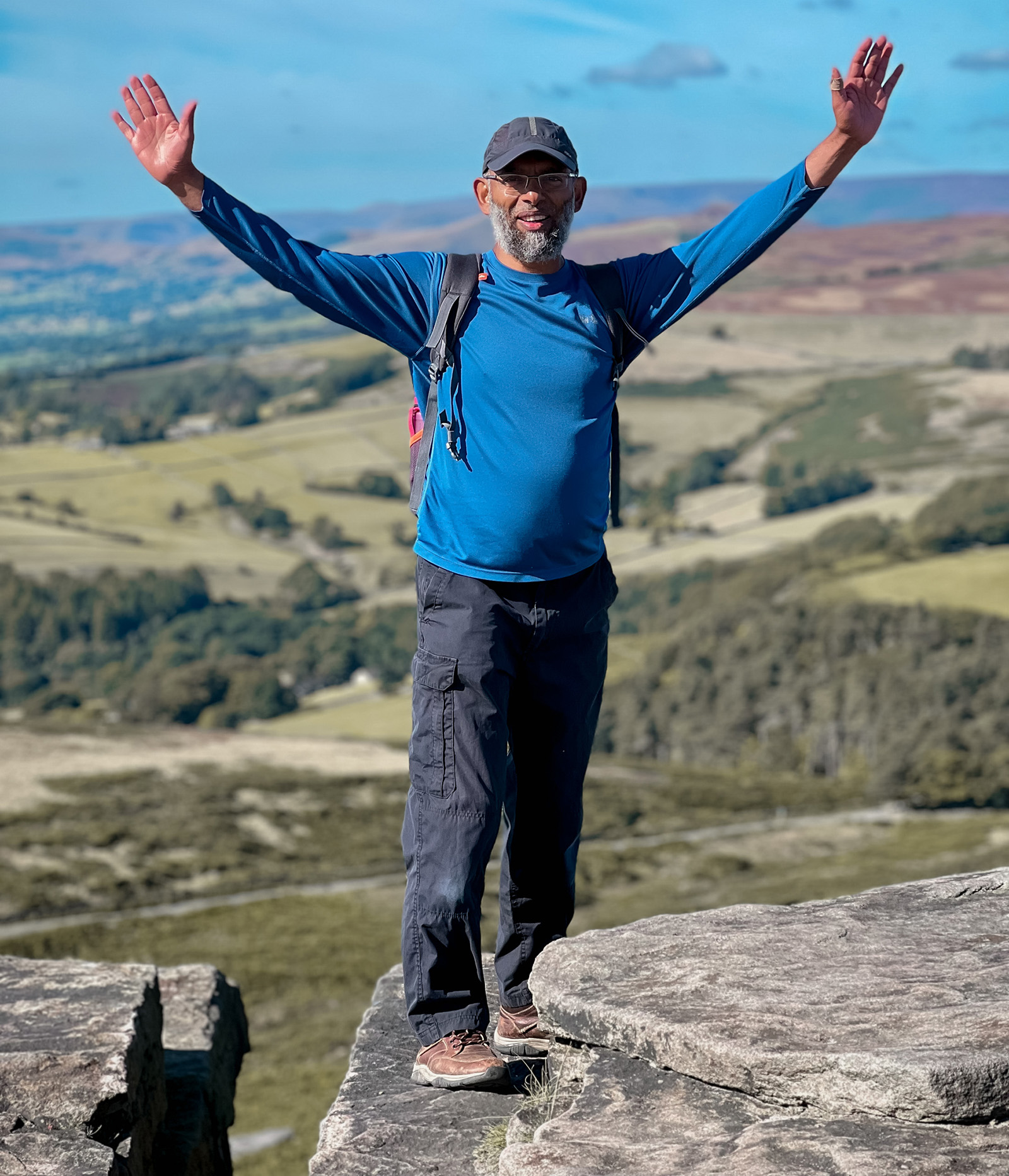
Another is the company Muslim Family Adventures, which leads outdoor group trips for families in national parks across Britain. “During daytime we go climbing, abseiling, coasteering – then in the evenings we have storytelling, mindfulness, games and quizzes,” said Faisal Mohammed Khaffar, who founded the company four years ago having long enjoyed camping adventures with his own family. “Lots of Muslim families didn’t have much information about the national parks when we started. But there’s a real push now, with Muslim hiking and camping groups, to encourage people into the outdoors. The national parks are crucial to all that.”
The day was drawing in. Although my route was unplanned, I had settled on a place to sleep that night: Beltonville Farm, which offers campers the chance to pitch a tent in a field for a small fee. This kind of nearly-wild camping is an alternative to wild camping – pitching a tent unannounced on private land – which, although popular and often tolerated, is technically illegal across most of England. The only exception is Dartmoor, which is currently locked in a court battle over its status as England’s last legal sanctuary for wild campers. Nearly-wild camping has the added advantage of allowing you to keep to reasonable times – wild campers tend to arrive late at night and pack up at dawn, to avoid being detected.
And so I took my time pitching my tent, and watched the sun sink over the river valley, the dark forest, and the cow-peppered fields – the scene of today’s adventures – with nothing on my mind except where to go tomorrow.
 Newsletter
Newsletter





